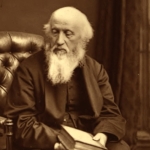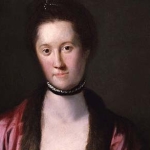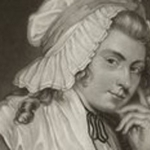The grey sky, lighter & darker
greys,
lights between & delicate
lavenders also
blue-greys in smaller strokes,
& swashes
of mauve-grey on the Hudson—
openings
of light to the blue oblong
off-center
where the door to the warehouse
shows—
the larger smearings darkening
deep
into blues
So alight that sky,
late August,
early evening,
I had to
gasp at it,
stand there hardly moving
to breathe it, using
whatever my body gave me,
at
that moment attending to it,
thinking:
Turner, he should have
seen it,
he would have given it
back to us,
not let it die away
And that other
evening, walking down Bank Street from marketing,
the sky fiery over the river,
luminous but
hot in its flowering also,
rich in color
as Venice seen by Guardi—more aflame even,
the sky moving in a pulse,
its fire breathing
in a pulse verging on danger—mane of a lioness
affronted.
That brilliance—the eye of the lion
filled to the lids with
flame
And his eyes, Turner's, that bright grey eye
at seventy-six,
"brilliant as
the eye of a child"
who grew his thumbnail
in the shape of an eagle's claw,
the better
to use it in painting
In Kirby Lonsdale, Yorkshire,
where Turner first drew mountain-landscapes,
I found Blake's Marriage
of heaven and Hell—sold for two guineas, 1821
& Turner aged 46 that year
& there I read:
"And when thou seest
an Eagle, thou seest a portion of genius.
Lift up
thy head," says Blake.
These afternoons now,
late in September, 76,
the sky, the river are lit up
at the end of Bank Street, at Bethune.
The pavement
trembles with light pouring
upon it
We are held in it.
We smile.
I hold my breath to see if
the cashier in the supermarket
will be gentle with the old lady who cannot
read the price-tag on
a loaf of bread.
Then I breathe freely,
for yes, she is helpful, yes, she is
kind.
Outside on
the pavement, the light pouring itself away
is the light in the eagle's
eye (or the eye of
a child)
(I saw it in a man's eye once:
but he's dead now more than
four years)
Drawing heat out of
surfaces,
the light is
without calculation,
is a munificence now,
is justified.
new york, 1977

















Comment form: